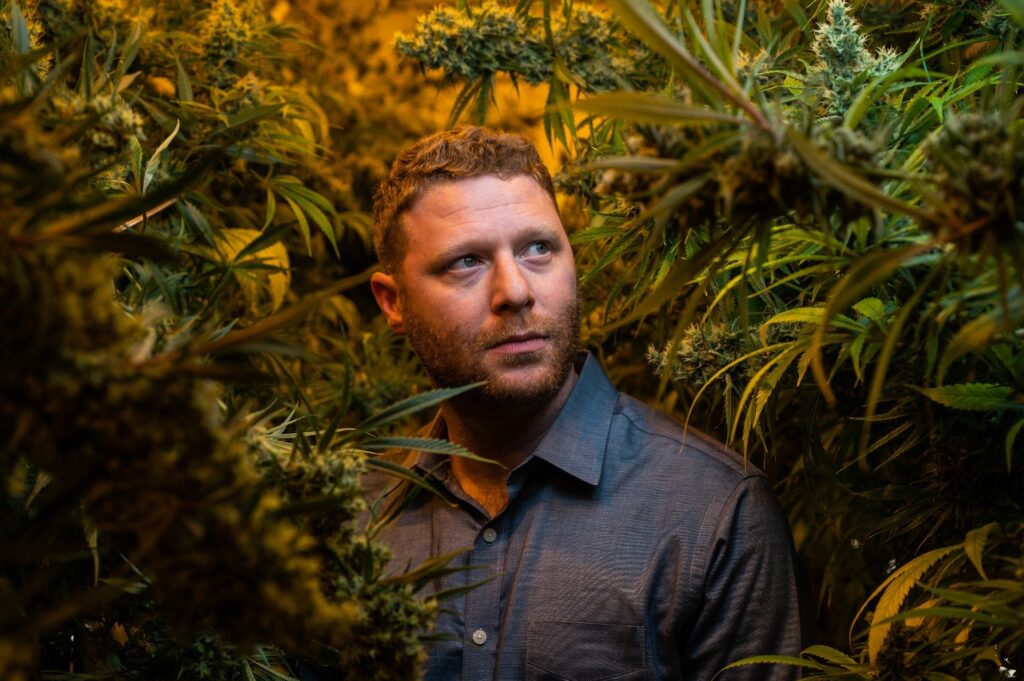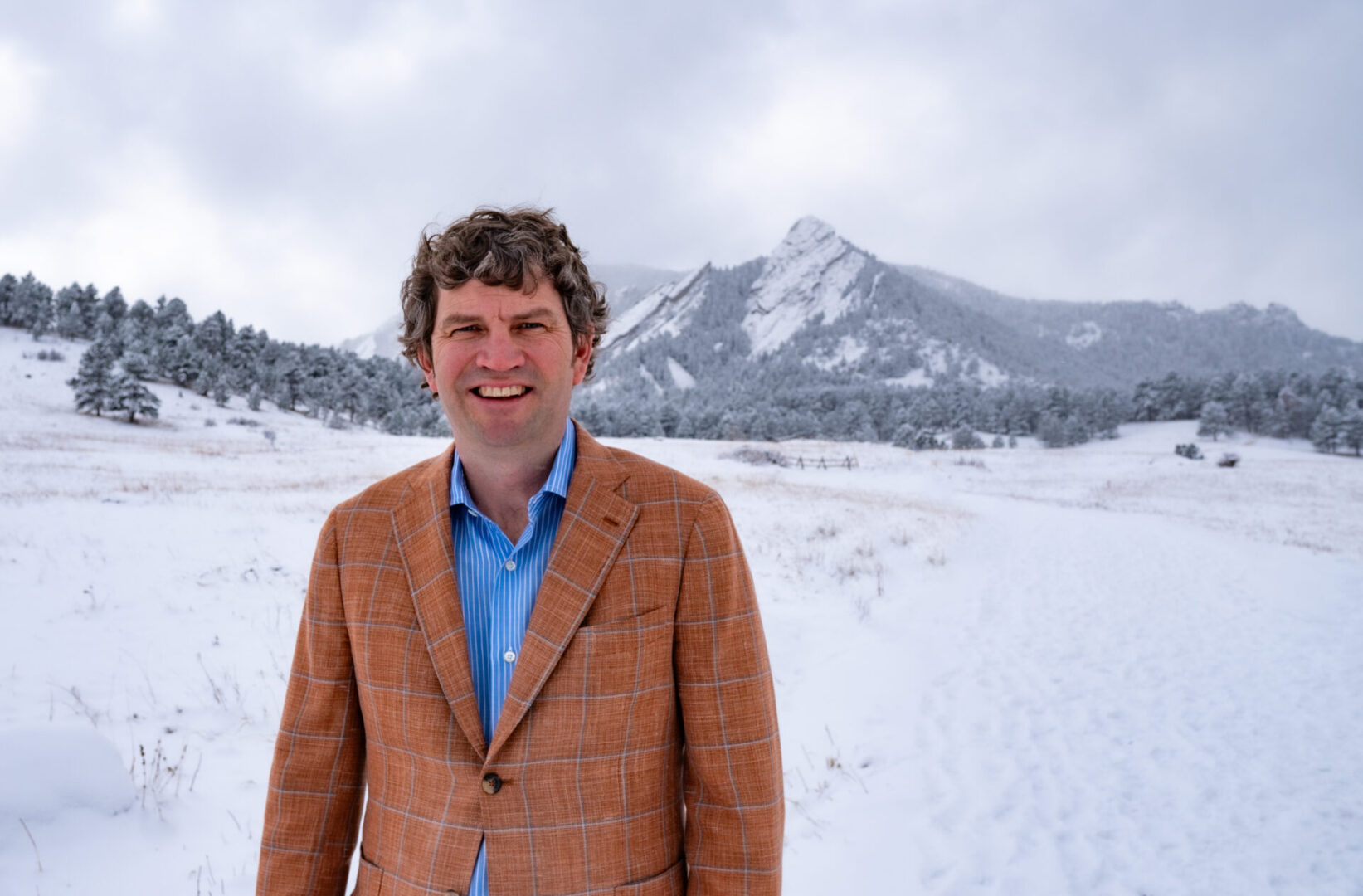Chris Woods’ road to becoming the founder of a cannabis business with a growing presence in Central Pennsylvania had roots at Penn State.
But it was hardly a grand plan.
“I was a good student. I studied engineering,” says Woods, who graduated in 2005 with a bachelor’s degree in bioengineering. “I was in the Ph.D. program [at the University of Colorado in Boulder]. I was pretty convinced that I was just going to work in academia or private industry and just be a lab rat, but entrepreneurship is a little bit more fun now.”
His entrepreneurial spirit eventually led Woods to found Terrapin Care Station as a medical marijuana operator in Boulder in 2009, the same year he earned a master’s in applied mathematics; Terrapin grew as recreational marijuana was legalized in Colorado in 2012. The company later did business in other states, but while its 10-member management team is still based in Colorado, its operations are now solely in Pennsylvania.
Terrapin’s 180,000-square-foot grow/processing plant in Avis, outside Jersey Shore, employs about 140 people and distributes its products to virtually all of the state’s 186 dispensaries, including the four in State College.
After a state law change that allowed grower/processors to open up to three medical marijuana dispensaries each, the company early this year became the first to take advantage, opening Terrapin Care Stations in Bellefonte and Lewisburg; a dispensary in Lock Haven was tentatively scheduled to open in April. Those are expected to employ a total of about 43 people and help fill a need in underserved areas, Terrapin says.
While recreational marijuana sales remain illegal in Pennsylvania, Woods is hopeful that will change, perhaps as soon as this year.
In presenting a $51.5 billion budget proposal for 2025-26, Gov. Josh Shapiro called on lawmakers — as he has in previous years — to legalize recreational marijuana sales to help close a $4.5 billion budget deficit. The administration estimates it could generate $1.3 billion in the first five years through licensing fees and a 20% sales tax.
There is still skepticism and opposition to the idea, particularly in the Republican-led state Senate, with some citing public safety concerns, according to Spotlight PA.
But with all of the states that border Pennsylvania — except West Virginia — already allowing adult-use recreational sales, many PA residents simply cross the border to make purchases. Shapiro would like to keep that revenue in Pennsylvania.
“It does seem like the political climate is there, the budgetary climate is there,” Woods says. “The devil is going to be in the details.”
As it was in Colorado, Terrapin has been a pioneer in bringing medical marijuana to Pennsylvania residents. In 2017, it secured one of the first 12 grower/processor licenses in the state, opening its Avis plant in 2018.
Woods and Vice President of Communications Peter Marcus say the Clinton County Economic Partnership was instrumental in helping Terrapin open in Avis, and the company also received a warm welcome in bringing a dispensary to Bellefonte.

“They had never approved a medical marijuana dispensary before … and they went through, they did their homework, but they were great to work with,” Woods says.
Part of Terrapin’s mantra is to be active in the communities it serves.
Its grand opening celebration in Bellefonte included a canned-food drive as part of its partnership to help the Faith Centre Food Bank with monetary support, paid employee volunteer hours, and growing awareness for its mission. In Clinton County, Terrapin has supported the Horses of Hope, which helps veterans transition back to civilian life through equine therapy, and The New Love Center, which hosts a food pantry for those in need. Terrapin also donated $25,000 to help spark fundraising for a veterans park that opened last year in Lock Haven.
“We try to bring it back to our roots with why we got into this thing,” Marcus says. “Obviously, under prohibition, people went to prison. … You lose your life over things like that. Sometimes you end up homeless over things like that. Sometimes you end up a veteran who’s not getting the care that they need. So, we try to find nonprofits that can also bring the rehabilitation that was from decades of failed drug policy.”
Here are more highlights from our conversation:
Why did you decide to put your processing plant here in this part of Central Pennsylvania, and then when you had a chance to open dispensaries, to open them in this part of the state?
Woods: I lived in the area for about four years. I went to Penn State and it was this great workforce, [an] area that I was familiar with. I grew up in Bucks County and real estate was more expensive there. There’s a lot of opportunities [in Central PA]. … Our workforce is based in Central Pennsylvania, and so being able to leverage the existing infrastructure that we had in the area only made sense.
When you were at Penn State, Chris, did you ever envision that someday you’d be running a medical marijuana company?
Woods: I would not say no. I took a class, I think my senior year, in drug policy and I think legalization and drug reform had started to take form. … Our friend Mason Tvert ran the first Colorado campaign for recreational marijuana in 2006 and we quickly met them out here [in Colorado]. I’ve been working in the space since 2009. But in terms of bringing it back to State College, no, it wasn’t in my purview that I’m going to move to Colorado, my dad’s going to die, leave me just enough money to capitalize this, feel like all these coordinates are going to happen in Colorado; that’s happenstance.
But to be able to do it is cool, because I’m familiar with the area and we’ve built these businesses throughout the country. I’ve, at this point, basically sold every interest in any cannabis company that I’ve had outside of Pennsylvania, but being able to understand the market, the landscape, and the people, that’s why we’re still in Pennsylvania. It’s a good place for us to be.
How are sales in Pennsylvania?
Woods: I’d say they’re pretty flat right now, to be honest with you. It’s definitely an existential threat with most of the state’s borders touching emerging, robust population centers with recreational adult-use markets. … Eventually the state’s going to have to do something in terms of the adult-use convert process. And we’re optimistic to that. The Bellefonte store specifically is doing a little bit better than what we had thought it was going to do. It’s a smaller community, it’s not huge, but it’s good. We’re happy with how our business is there, and we feel like there’s reason for optimism that the state will pass some adult-use legislation in the immediate to intermediate future.
Do you think [Pennsylvania adult-use legislation] is starting to get some traction?
Woods: We expect [as of late February] that there’s going to be a bill introduced in the coming months. We know that both sides are interested in this, especially with the budget deficit. … We expect the governor to lead on this issue. He’s going to have to; it’s a split legislature. I think there’s sensible heads on both sides, and they’re going to have to figure out the path forward that appeases what people need to get this clear through the legislature, because the state and the industry needs it to happen.
Marcus: The tone has changed in Harrisburg. Yes, the governor has included this for three years running and there hasn’t been much movement. In prior years, the thinking was, “Sure, this will eventually happen, but it’s not happening this year.” Obviously, it’s an uphill battle with some Republicans but there’s been an evolution there as well. You can see it just in the way they’re being quoted in news stories. It’s less about, “I don’t see this happening this year,” and more now about, “There’s a few things we’ve got to check off, and we’ve got to see the governor take a leading role in that and then we’ll get this thing done.”
Woods: They want to see regulation of intoxicating hemp products that you can just buy at smoke shops that don’t have any regulation right now, gas stations, smoke shops; they’re looking for some sort of regulation, some law enforcement, so underage kids can’t just be going to purchase unregulated product. I think that there’s a confluence of interests that are trying to get worked out right now.
As you’re out there advocating for legalizing adult-use sales, what are the arguments against it that you hear? And how do you respond to those?
Marcus: The biggest thing that we’re dealing with right now is this proposal for a state-store model [similar to liquor stores]. Obviously, there’s always concerns with legalization when you talk to folks who are prohibitionists that are opposed to legalization with the usual concerns about kids and effects on the body and brain and all that kind of stuff. But really, we’re actually not seeing too much of that in Pennsylvania. What we’re seeing is a philosophical debate on how to legalize, and so it’s more about dealing with the state-store model.
I don’t think I have to do too much polling of Pennsylvanians, and especially folks who visit Pennsylvania; everybody pretty much agrees that the state-store liquor model is pretty weird. … I think folks who have proposed a state-store model, they feel like maybe there’s greater safeguards, but what they’re ignoring is that there’s no experience on the state level for something like this. First of all, you’re putting your state employees at legal odds with the federal government [marijuana remains illegal under federal law].
Woods: And they don’t have the money to go find locations, to build them out, to go purchase product. The government’s not going to be able to move quickly in doing that.
You’ve been in this business for 17 years. What do you find the most satisfying part of this? What drives you?
Woods: I like the entrepreneurship of it. I like building. I’ve been on both sides of growth, where you’re building and you’re contracting. But being able to build the community around you, build a business, build a workforce, really be a good member of the community. I like to know the communities that we’re in. And that’s what’s special to me about doing this in Pennsylvania, specifically Central Pennsylvania, going back to Centre County.
I mean, we get to go to Penn State football games. We get to be with the people that I like to be with. That’s the fun part. You’re providing jobs, income, livelihoods to people, and then you have a common mission that we feel, that I feel, is providing good in the community. … It’s built, not bought. That’s what’s most gratifying to me. T&G
Mark Brackenbury is a former editor of Town&Gown.




